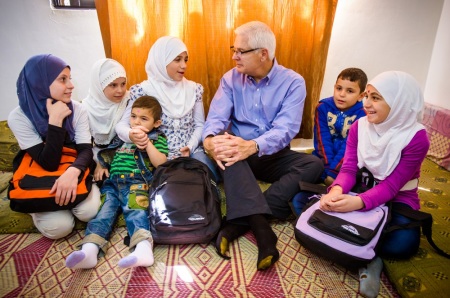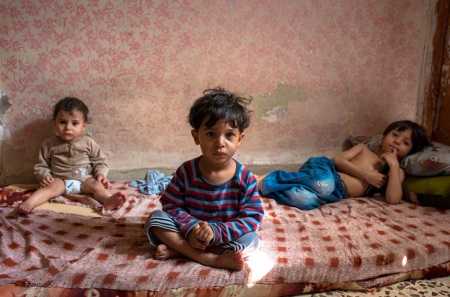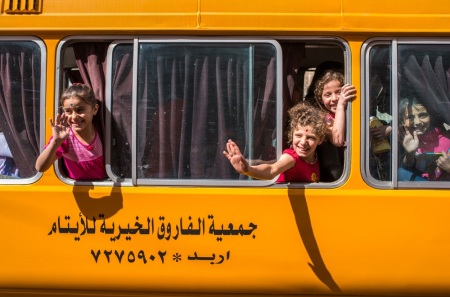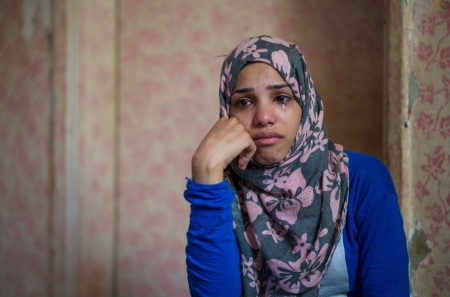11-Year-Old Syrian Refugee Pleads: 'Have the People of the Other World Ever Thought of Us?'
Syrian refugee children in Za'atari, Jordan, had painful words to share about the state of their country with World Vision President Richard Stearns last month.

Stearns, who was surveying the needs of the half-a-mile by half-a-mile, 120,000-person camp, met with several of the camp's thousands of children, two of whom had prepared a message for him.
Crammed into the confines of a two-bedroom apartment that "multiple families" call home, nine-year-old Rahma and 11-year-old Haya shared their grief over their homeland with Stearns.
Haya, who lost her father to the war, expressed her frustration and feelings of helplessness that the conflict had brought.
"I am talking on behalf of Syrian children, calling on you -- the people of the other world. Have you ever thought of Syria? Have you ever thought of the children of Syria? My country Syria?...We fear you are forgetting us," she wrote in the letter she read aloud.
While Haya expressed gratefulness that the Jordanians had taken her people in, she also acknowledged that she did not feel especially at home in the new country, a feeling exacerbated by her father's absence.
"Please, we are very bored here. Please, my name is Haya and my father was killed. I want to go back to Syria. I loved my father so much and I love him even more than my mother and you know why? Because I used to see him only once a year. He traveled and now I will never see him again," she said.

Haya then performed a song she had written, lamenting her country.
"Syria is in pain. / Syria is bleeding. / Syria is crying for her children. / Her children were her candles and they have faded out. / Now we are all everywhere outside Syria. / We are crying and Syria is crying blood because her children are missing," she sang, attempting to express hope during the song's conclusion. "We, the children, want things to be better again. / We want to get back to our country and rebuild it."
Rahma spoke bluntly about the brutalities of the conflict.
"I don't know how to start or where to start. Should I start talking about my country or speak of the children of my beloved country Syria? Should I start with the children who were killed and slaughtered? Or should I talk about the children who were tortured in the meanest ways? Should I talk about our home that burned down or speak of my room, my toys, or my notebooks?" said Rahma.

Stearns said that Rahma and Haya's words underscored the severity of the Syrian crisis.
"About half the refugees are children. This is a children's crisis...Some of these children have not been in school for three years now because the ones that fled early in the conflict, this is the third school year that they are missing. A whole generation of Syrian children is being affected by this," he told The Christian Post.

The New York Times estimates the scale of the crisis at roughly 2 million Syrian refugees. Of that, Stearns said that he believes 500,000 alone are living in Jordan, a country of 7 million.
"It would be like having 25 million refugees coming in to the United States in a period of 12-18 months," said Stearns, attempting to contextualize it to an American audience.
Most of the countries bordering Syria have taken in hundreds of thousands of refugees. Lebanon, which has 790,000, has the most of any country, followed by Jordan. Turkey has 504,000, Iraq 197,000, and Egypt, 126,000.





















